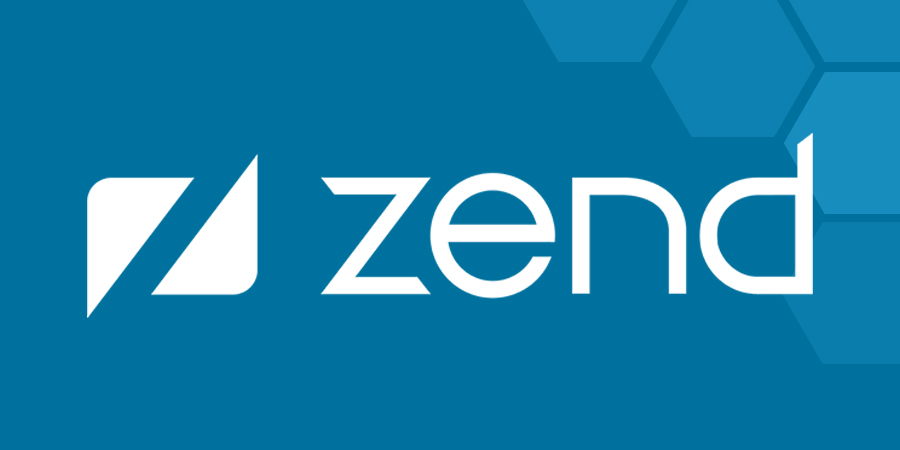Zend Application Development
Zend is widely used when it comes to application development. It is indeed an amazing framework among developers all over the world.
Since the release of Zend, it is used widely in terms of application development. It has a robust component library that provides 80 percent functionality, which is mostly needed by developers. The rest of the 20 percent could be changed as per a website’s requirements.
ZEND AS A PHP FRAMEWORK
Zend is truly an interesting framework. The difference between Zend Application Development and other PHP frameworks seems to be that it does not push the MVC portion towards the forefront as much as others, that at times could be confusing in terms of learning how to start a basic project. What makes Zend one of the premier frameworks that is used by developers of PHP is that it offers stable, clean code and complete with intellectual property rights. PHP is gaining popularity in the enterprise scenario.
Zend is the most popular PHP development framework, compared to other frameworks. It is an open source platform, provides the best functionalities and features as well as usefulness for small and big business alike. It has various features that make it one-of-a-kind, including the components, a thousand of libraries and a whole lot more.
BENEFICIAL FEATURES OF ZEND APPLICATION DEVELOPMENT
There are numerous beneficial features that help a programmer when it comes to Zend application development. They include the following:
1. A goodness of object orientation. When working with Zend, everything has to be seen as well as used as an object. Nonetheless, it also has its disadvantages, like making coding more complex. Yet, it does provide an upper hand through making codes reusable. However, developers seldom repeat their code, so this makes it a good choice.
2. Extended classes. The Zend framework is thoroughly an object-oriented platform. It consequently uses plenty of OO or object-oriented concepts, such as inheritance and interfaces. This enables a developer to extend the components to great extent. Moreover, this helps developers implement their own variations or versions of every single component with no need to hack into the code base. These kind of customizations bring uniqueness to every project.
3. Does many things. The framework integrates plenty of components that range from user authentication to controlling resources access. In the same way, it’s easy to integrate RSS feeds as well as build forms.
4. No model implementation. This is a reason that some developers do not use Zend and some love it. The lack of model implementation gives developers flexibility of using elements for achieving the end result. There aren’t any restraints holding back the already complex implementation.
5. Focus on what one needs. Going by the design, the framework is a simple collection of classes. In each project, The Zend MVC component are used. Nevertheless, in other cases, one could just load the components needed. The platform is quite decoupled, providing every component as a single library, rather than being a framework as a whole. Developers of Zend have heard about glue framework, which actually refers to its decoupled nature and the ability to be ‘glued’ to current apps.
6. Test driven development practice. Developers have to write test for their codes. This is because it is easier to exchange codes, create input/output whitelist, refactor and think of possible use cases.
7. Zend could be integrated with anything. Zend’s decoupled nature makes it suitable for integrating external libraries to be used in it. For instance, developers who are planning to use Smarty as template could simply integrate a wrapping class with the Zend_View_Abstract, which in turn uses Smarty to render.
8. Documentation and community. Because of the high complexity, Zend incorporates a steep learning curve. Nonetheless, documentation as well as all pervasive community makes it easier for a learner to comprehend the platform.
9. Guidelines and standards. Each contributor must sign a CLA or Contribute License Agreement, and every code should adhere to generalized coding standards. This makes each code very tested, qualitative and readable.
10. Certifications. Zend probably is one of the new platforms that provide both PHP Certification and Zend Framework Certification. This could certainly motivate emerging and young developers to undergo training and certification exams that would help build their portfolio.
CHOOSE A ZEND DEVELOPER OF SERVICE PROVIDER
There are of course some considerations when it comes to choosing a Zend developer or service provider. Today, Zend has become very popular in web application development. Its reliable and fastest functions make it very powerful. Because of this, small and large businesses alike start their services and products online with the framework. Hiring a professional developer is more reliable than hiring freelancers because professional service providers would be able to deliver timely projects. Some points to consider:
- Project expertise. Experience is the first thing, thus before hiring, determine that the provider has done a similar project or not and if they would be able to fulfill the business requirements.
- Check previous clients. Determine if previous clients are happy or not with the service. Ask about client information and details.
- Developer price. Check price before hiring. Make comparisons and ask current prices to determine if the asking prices is reasonable or otherwise.
It is without a doubt that Zend is the most popular PHP frameworks used by web application development service providers these days.
As a clean and classy PHP framework for web development, Laravel is taking the PHP community by storm. Now, PHP developers are about to experience...
 Dec 22, 2016
Dec 22, 2016 
Comments
Leave a message...